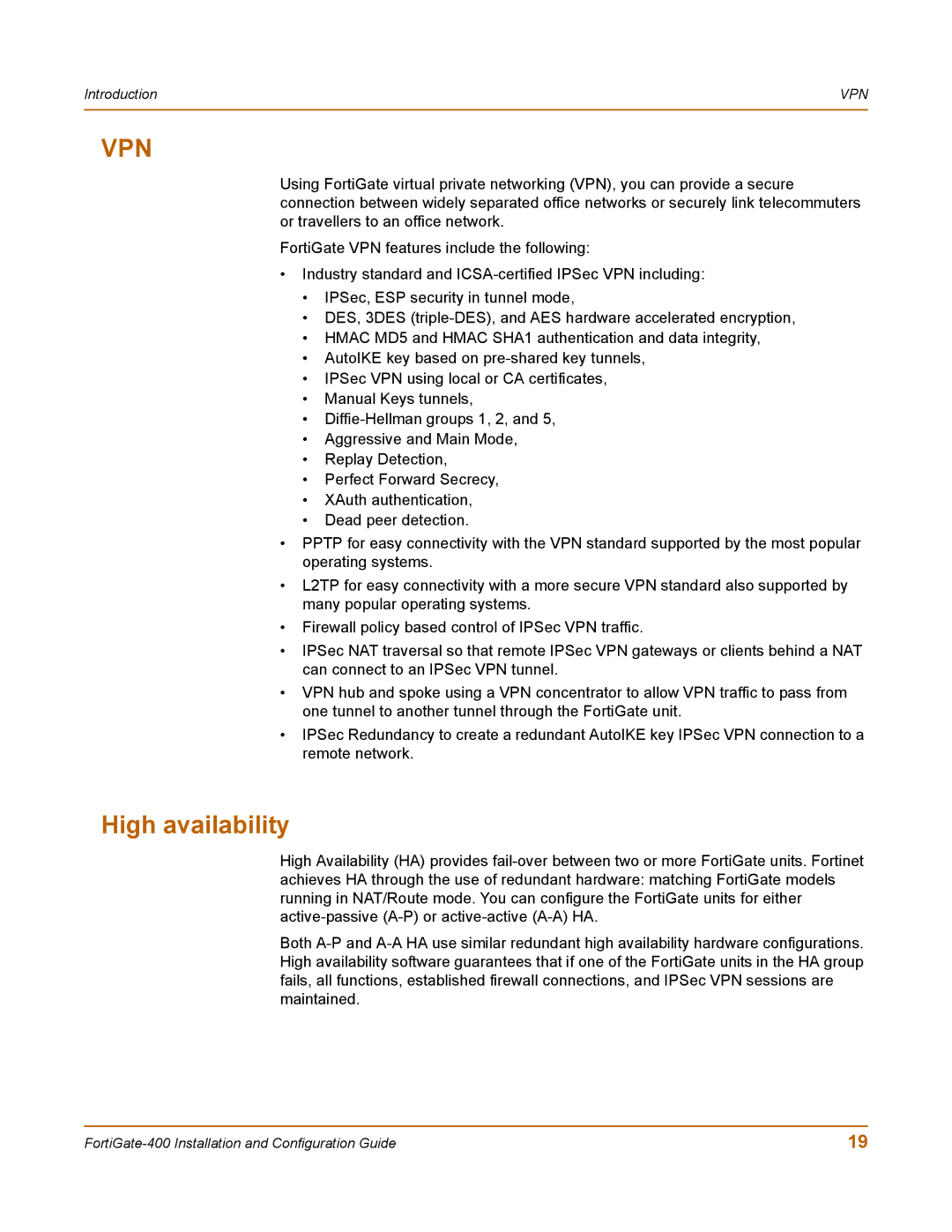Introduction | VPN |
|
|
VPN
Using FortiGate virtual private networking (VPN), you can provide a secure connection between widely separated office networks or securely link telecommuters or travellers to an office network.
FortiGate VPN features include the following:
•Industry standard and
•IPSec, ESP security in tunnel mode,
•DES, 3DES
•HMAC MD5 and HMAC SHA1 authentication and data integrity,
•AutoIKE key based on
•IPSec VPN using local or CA certificates,
•Manual Keys tunnels,
•
•Aggressive and Main Mode,
•Replay Detection,
•Perfect Forward Secrecy,
•XAuth authentication,
•Dead peer detection.
•PPTP for easy connectivity with the VPN standard supported by the most popular operating systems.
•L2TP for easy connectivity with a more secure VPN standard also supported by many popular operating systems.
•Firewall policy based control of IPSec VPN traffic.
•IPSec NAT traversal so that remote IPSec VPN gateways or clients behind a NAT can connect to an IPSec VPN tunnel.
•VPN hub and spoke using a VPN concentrator to allow VPN traffic to pass from one tunnel to another tunnel through the FortiGate unit.
•IPSec Redundancy to create a redundant AutoIKE key IPSec VPN connection to a remote network.
High availability
High Availability (HA) provides
Both
19 |
